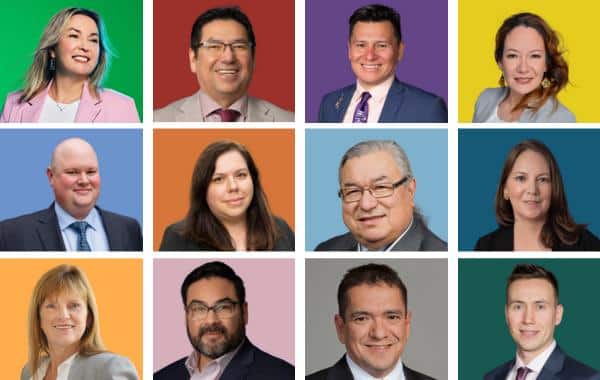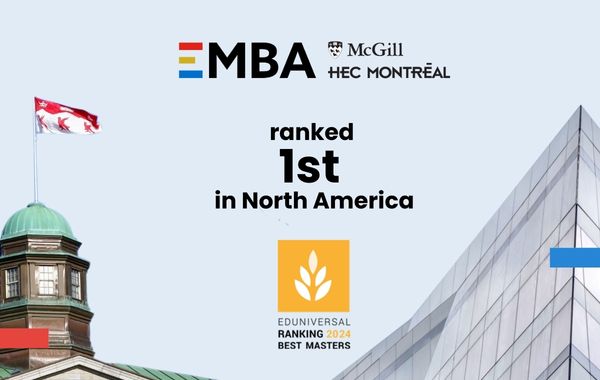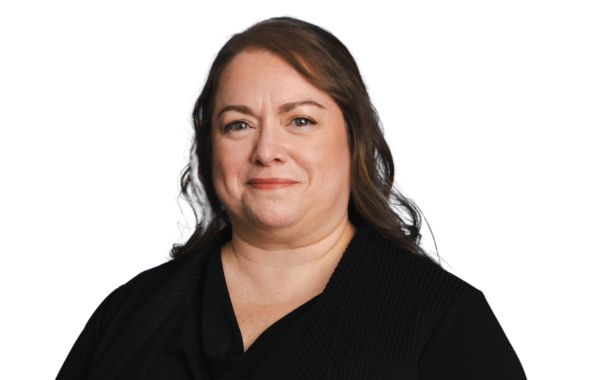Every year on June 21st, communities across Canada come together to commemorate National Indigenous Peoples Day, which recognizes and celebrates the diverse cultures, languages, traditions, and contributions of Indigenous peoples.

The significance of National Indigenous Peoples Day for our McGill-HEC Montréal EMBA alumni of Indigenous Origin
«Le mois de l’héritage autochtone est important parce qu’il peut aider à faire prendre conscience à la population canadienne et québécoise de la richesse inestimable de la culture, des valeurs et des langues des peuples autochtones et les éduquer sur leur présence historique.» Ken Rock, EMBA 2013, directeur général de la Corporation de développement économique de Uashat mak Maniutenam.
National Indigenous Peoples Day serves as a platform to showcase the cultures and histories of Indigenous peoples and offers an occasion for all Canadians to reflect upon the past, to acknowledge the injustices that Indigenous communities have borne, and to work towards a future of mutual respect, collaboration, and healing.
“It’s a chance for Canada to see and experience indigenous culture be celebrated and built up, rather than the opposite tendencies that have pervaded our history. It’s a chance for our nation to reflect on the merits and disadvantages the colonial system that our entire country is based on.” Jason Annahatak, EMBA 2017, Business development manager at Makivvik Corporation.
National Indigenous Peoples Day provides an opportunity for non-Indigenous Canadians to learn, engage, and connect with Indigenous cultures with the goal of building bridges, challenging stereotypes and finding a new way forward.
“It gives an opportunity for dialogue, celebration, growth, and understanding, where Indigenous Nations are welcome and visible to showcase their knowledge, traditions, languages, and where cultures can learn from each other and forge a new path, a new partnership, one that stands the test of time, a new story that will be one for the ages that our future generations can be proud of.” Robert Auclair, EMBA 2022, Business Development Officer for Creeco, Cree Regional Economic Enterprises Company.
«Le mois de l’héritage autochtone est, selon moi, une opportunité pour la société civile de venir à notre rencontre. C’est une occasion de se rencontrer et d’apprendre à nous connaître. La méconnaissance de nos différentes réalités autochtones fait en sorte qu’il y a plusieurs jugements et préjugés. Alors, brisons-les! » Naguset Manon Jeannotte, EMBA 2016, directrice de l’EDPN.

Why is having managers of Indigenous origin important in an Executive MBA classroom?
Indigenous people bring diverse perspectives, cultural richness, and authentic learning experiences to the EMBA classroom. This contributes to breaks down stereotypes, facilitates cultural exchange, and enhances the educational experience for everyone.
When asked about who she would identify as the EMBA colleague she admires most, Trionne Phillips, EMBA 2023, answered:
«That’s a tough question as I admire each of my classmates for who they are. One of my classmates who really stands out for me is John Longchap, a member of the Cree Nation of Mistissini. Although John sometimes appeared quiet and unassuming, his insights and perspective working in the government non-profit sector as well as his perspective as a First Nations Leader often added value to our discussions. One of my biggest takeaways from John is to find time each day to smell the flowers and feel the rain.»
Recipients of the McGill-HEC Montreal EMBA Scholarship for Managers of Indigenous Origin have broadened and deepened their classmates’ understanding by sharing First Nations’ perspectives.
“I’ve always been an advocate for opportunities for growth, and also to shine a light on other people. The EMBA was kind of aligning with getting out of my comfort zone and seeing what else I could do to bring more to others, and at the same time to bring new perspectives to the program. I wasn’t sure exactly what would be expected of me, I’ll say that much. But I really do believe in capacity building, [the Cree Nation of Eeyou Istchee] has been working towards that, our board has as well. It’s our mission for others to reach their highest potential.” Kimberly Quinn, EMBA 2021, Director of School Operations for the Cree School Board.
Indigenous EMBA participants, just like all other McGill-HEC Montréal EMBA participants, graduate with a new set of tools, an increased confidence, and a greater capacity to have an impact and be a change leader.
“During my EMBA, I took a new pair of glasses and gained confidence facing the fear of failing. Failure is not the end but an opportunity to learn and build something more evolved without repeating the mistakes of the past. This lesson is not easy to apply at work because you must take into consideration the ability of your environment and organization to evolve along with you. That said, the EMBA program gave me the tools to be a change leader and I will use them to make things happen.” Ian Picard, EMBA 2021, Deputy Manager of Development and Asset Management for RBA Financial Group.
Our EMBA McGill-HEC Montréal Alumni of Indigenous Origin

Ken Rock, EMBA 2013
Ken Rock is a member of the Innu nation and member of the Uashat mak Maniutenam community, a descendant of the traditional band of the Mishta Shipu (Moisie River). He is Managing Director of the Economic Development Corporation of Uashat mak Maniutenam (SDEUM) and Director of Innovation at EDPN.
« Ma mission professionnelle est de favoriser et promouvoir le développement économique de la communauté de Uashat mak Maniutenam. Ce développement économique est un levier important dans l’amélioration des conditions socio-économiques des membres de la communauté de Uashat mak Maniutenam. […] J’ai toujours travaillé avec comme objectif l’amélioration des conditions de vies des membres des peuples autochtones qui, encore aujourd’hui, vivent dans des conditions inacceptables dans un pays qui se dit développé.»
➡ Article about Ken

Raphaël Picard, EMBA 2014
Raphaël Picard was chief of the Innu community of Pessamit for ten years. With the desire to transmit Innu values that inhabits him, he wrote two books:
- Nutshimit : Vers l’intérieur des terres et des esprits
- Nutshimit : Le blanc des perdrix et des perils
«Dans mes livres, je veux qu’à travers les histoires le lecteur comprenne l’organisation sociale, les croyances, la gestion du territoire, la survie et les valeurs, explique Raphaël Picard.»
➡ Article about Raphaël

Naguset Manon Jeannotte, EMBA 2016
Naguset Manon Jeannotte is Mi’gma, from the Mi’gmaq Nation of Gespeg, one of the three Mi’gmaq communities of Gespe’gewa’gi (in Gaspesie)]. Manon is the director and co-founder of the First Nations Executive Education, a leadership school created FOR and BY First Nations and powered by HEC Montreal’s École des dirigeants.
«Pour moi, il est important d’être un agent de changement et de créer un impact positif au bénéfice des Nations autochtones, ce qui bénéficiera également à la société Québécoise et Canadienne.»
➡ Article sur Manon

Jason Annahatak, EMBA 2017
Jason Annahatak is an Inuk from Kangirsuk, a small fishing village in the Nunavik region of northern Quebec.
He is the Business development manager at Makivvik Corporation, an ethnic Inuit organization with several mandates ranging from protecting and growing Inuit heritage funds and advocating for lnuit rights, to improving housing, promoting education, and alleviating poverty.
“My personal mission is to be a positive agent in the betterment of our social & cultural community as Inuit, as well as to the economic improvement of our isolated villages.”
➡ Article about Jason

Kakwiranó:ron Cook, EMBA 2019
A proud member of the Oglala Lakota and Mohawk nations, Kakwiranoron Cook is currently responsible for Indigenous community relations within the Diversity and Inclusion Education Division of Sobeys.
« L’autodétermination des peuples autochtones demeure le point le plus urgent. Conserver la vitalité de nos langues est aussi fondamental pour notre identité. Nous avons nos propres priorités, orientations, directions. Il faut donc continuer à discuter et à renforcer la compréhension. »
➡ Article about Kakwiranó:ron

Marjolaine Tshernish, EMBA 2020
Marjolaine Tshernish is Innu and proud of it. She is the Executive Director of the Tshakapesh Institute, an Aboriginal cultural institute that works to preserve and promote the Innu cultural heritage.
«Avec toute l’équipe, nous travaillons très fort afin de préciser les besoins de même que les projets, et assurer un accompagnement respectueux auprès des communautés dans le but de mettre en place les outils qui nous permettront de nous propulser pour l’atteinte d’objectifs spécifiques et communs. Cet accompagnement vise les enjeux actuels et futurs qui demeurent l’assise de nos actions futures : faire rayonner et développer notre langue et notre culture, et surtout, pour assurer le soutien à la persévérance scolaire et au développement identitaire.»
➡ Article about Marjolaine

Monika Ille, EMBA 2020
Monika Ille is a member of the Abenaki First Nation of Odanak. She is the CEO of APTN – Aboriginal Peoples Television Network.
« I am proud to be able to support talented Indigenous storytellers by offering them the possibility to create unique and powerful television concepts for all to appreciate. »
➡ Article about Monika

Ian Picard, EMBA 2021
A prominent member of the Huron-Wendat First Nation, Ian Picard serves as Deputy Manager of Development and Asset Management for RBA Financial Group, an organization dedicated to providing financial planning assistance and pension funds to First Nations communities across Canada.
“My greatest pride, over the past fifteen years, is that my work has always focused on the development of organizations and communities, and the well-being of First Nation members. Throughout this journey, I was fortunate enough to continue my education and develop expertise that benefits our members both today and for future generations.”
➡ Article about Ian

Kimberly Quinn, EMBA 2021
Kimberly Quinn is the Director of School Operations for the Cree School Board. During the EMBA, Kimberly says she appreciated the opportunity she was given to share her culture and her nation’s history with her peers in a more personal way, allowing them to understand it from a firsthand account rather than what’s portrayed in the media.
“We were able to bring in [the EMBA classroom] our Grand Chief at the time Dr. Abel Bosum, and he was with us for a half a day and spoke about our James Bay Northern Quebec Agreement. He also brought in his personal experience, and I think, from what my colleagues and peers shared, that resonated with them and has stayed with them.”
➡ Article about Kimberly

Robert Auclair, EMBA 2022
Robert Auclair is Cree from the community of Whapmagoostui, “one of nine Cree communities in Northern Quebec or as we call our traditional territory, eeyou istchee or the peoples land”. Robert is the Business Development Officer for Creeco, Cree Regional Economic Enterprises Company.
«As leaders, we should always strive to find purpose and passion greater than ourselves, as Indigenous people family encompasses also your community amd your nation. We do our work for our future generations so that we leave a stronger foundation than was given to us.»
➡ Article about Robert

John Longchap, EMBA 2023
John Longchap is Cree and was the Chief of his community of Mistissini for 10 years. He has been in senior management and director roles of non-profit Cree Organizations for most of his career. He has served as a Board member of various Cree profit-oriented businesses and is currently director of capital works and services for the Cree Nation Government.
“I have always valued education as a necessity for success that leads to a better life and to more opportunities.”
➡ Article about John

Rachel Martin, EMBA 2024*
Rachel Martin is Micmac from Restigouche/Listuguj and Capital Assets Manager with the Cree Nation Government. She is a current EMBA participant.



